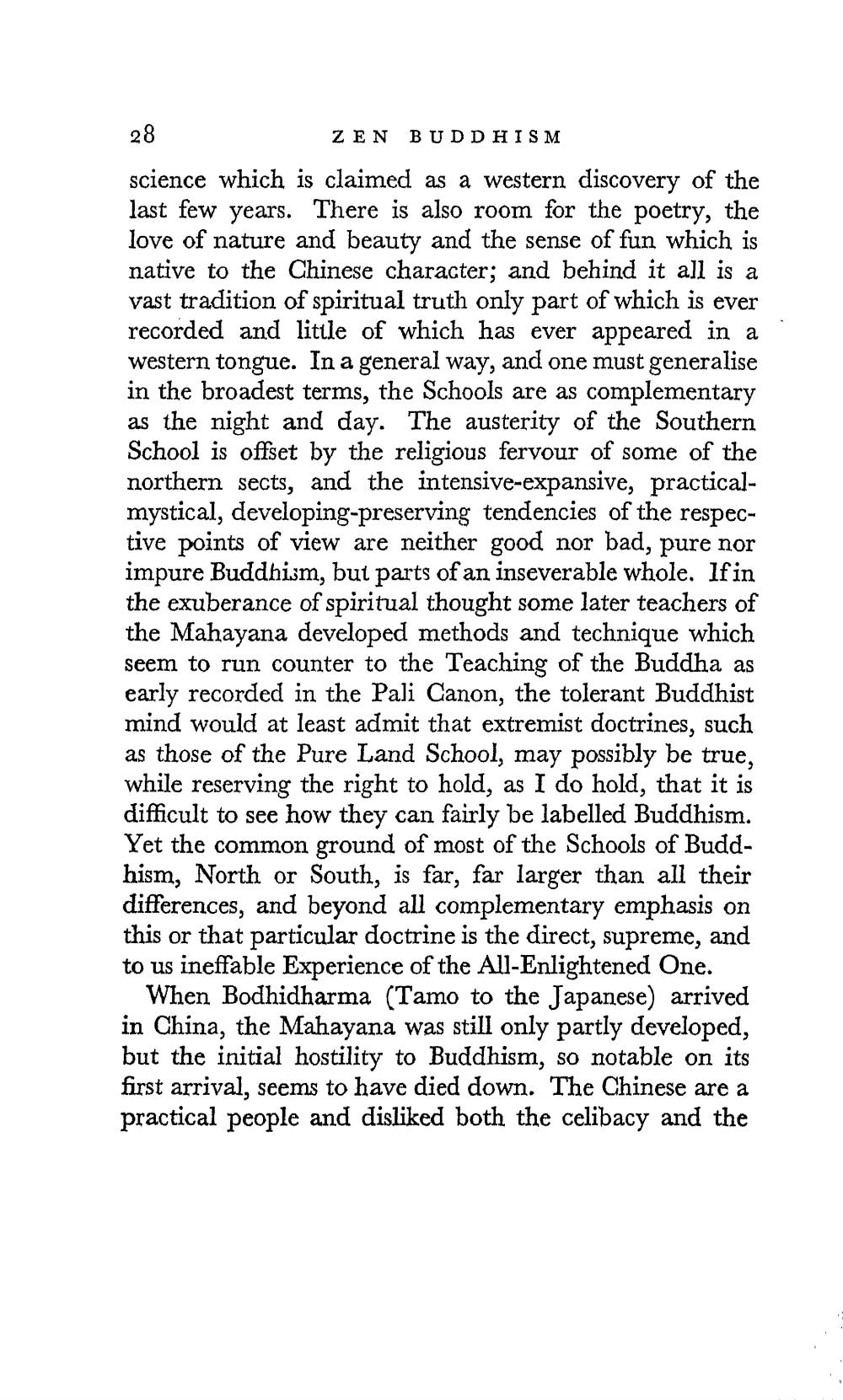________________
28
ZEN BUDDHISM
science which is claimed as a western discovery of the last few years. There is also room for the poetry, the love of nature and beauty and the sense of fun which is native to the Chinese character; and behind it all is a vast tradition of spiritual truth only part of which is ever recorded and little of which has ever appeared in a western tongue. In a general way, and one must generalise in the broadest terms, the Schools are as complementary as the night and day. The austerity of the Southern School is offset by the religious fervour of some of the northern sects, and the intensive-expansive, practicalmystical, developing-preserving tendencies of the respective points of view are neither good nor bad, pure nor impure Buddhism, but parts of an inseverable whole. If in the exuberance of spiritual thought some later teachers of the Mahayana developed methods and technique which seem to run counter to the Teaching of the Buddha as early recorded in the Pali Canon, the tolerant Buddhist mind would at least admit that extremist doctrines, such as those of the Pure Land School, may possibly be true, while reserving the right to hold, as I do hold, that it is difficult to see how they can fairly be labelled Buddhism. Yet the common ground of most of the Schools of Buddhism, North or South, is far, far larger than all their differences, and beyond all complementary emphasis on this or that particular doctrine is the direct, supreme, and to us ineffable Experience of the All-Enlightened One.
When Bodhidharma (Tamo to the Japanese) arrived in China, the Mahayana was still only partly developed, but the initial hostility to Buddhism, so notable on its first arrival, seems to have died down. The Chinese are a practical people and disliked both the celibacy and the




